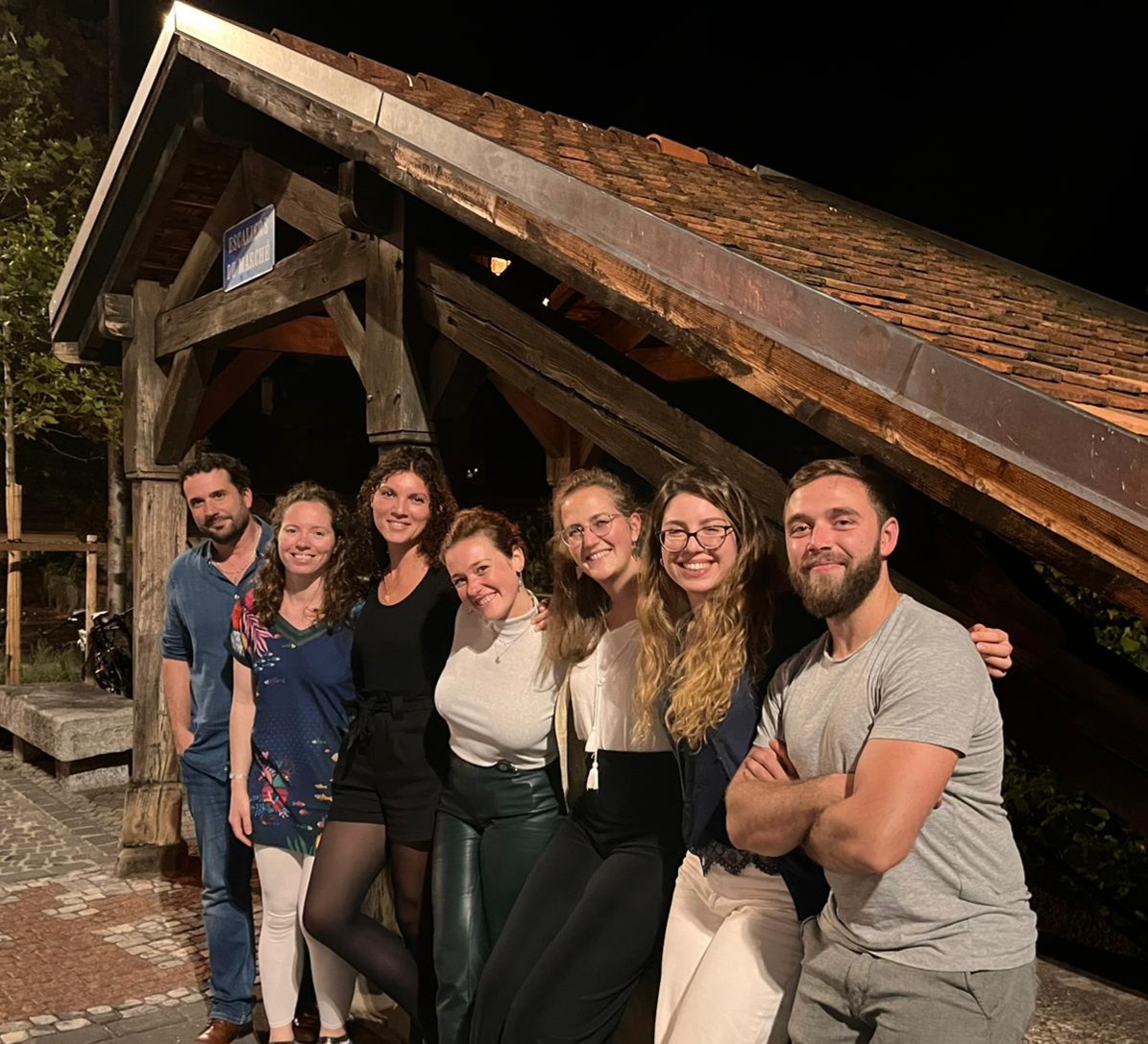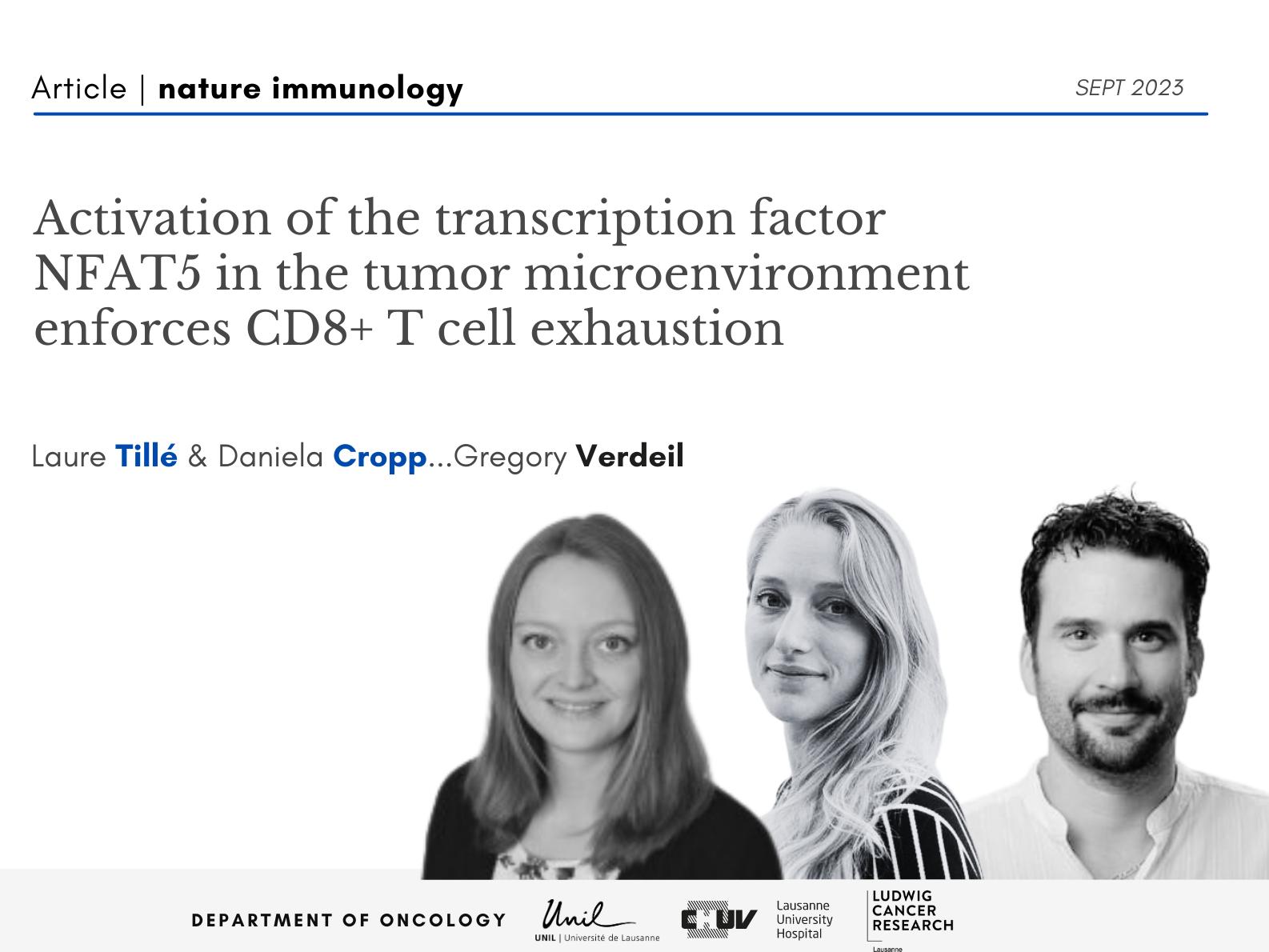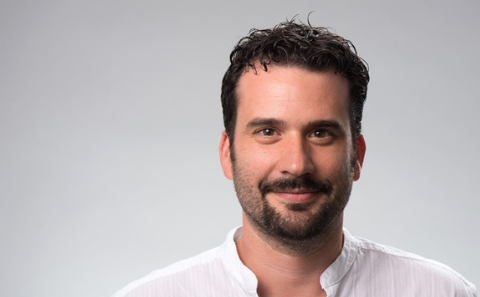VERDEIL Lab
Our focus
Our objective is to decipher and manipulate the mechanisms that prevent tumor elimination by T cells. This is done by combining the study of human samples and animal models.
Our projects
Identification of candidate molecular pathways causing “exhaustion” of T cells in cancer
The cancer microenvironment is highly immunosuppressive, preventing efficient elimination by the immune system and more particularly by T cells. To identify new potential regulators of the state of dysfunction (“exhaustion”) in T cells, we perform transcriptomic analysis of sorted subtypes of immune cells from melanoma in both patients and mouse models. The study of a different tumor type (bladder cancer) is also of central importance to understand the conservation of the molecular mechanisms regulating T cell dysfunction in different tumor types but also to emphasize the possible differences linked to the specificity of each cancer type. Bladder cancer is a leading cause of cancer-associated deaths in developed countries. We chose this model to perform similar analysis of “exhausted” T cells.
Manipulating mouse and human anti-tumor T cells to increase tumor elimination
In frame with the aims of the above project, we have identified several interesting target genes that regulate dysfunction in T cells. We are developing tools to manipulate the expression of these genes in both mouse and human T cells. Our aim is to improve the resistance of anti-tumor T cells to the immunosuppressive microenvironment created by the tumor and to improve their efficiency in controlling cancer.
Study of immune dysfunction in muscle-invasive bladder cancer
Bladder cancer (BC) is one of the most common malignancies and has poor prognosis for patients with locally advanced, muscle-invasive, disease despite the introduction of immune checkpoint blockade. To advance basic knowledge in tumor immunology and to develop more effective immunotherapy strategies, we are studying a genetic mouse model carrying deletion of Tp53 and Pten in the bladder which recapitulates BC tumorigenesis and gene expression patterns found in patients. In this model, similarly to what is described in human, we discovered that not only tumor cells are becoming more malignant but also the immune microenvironment evolved from an inflammatory to an immunosuppressive state. By understanding the fundamental mechanisms in place in this model and after validation in human samples, we are incrementing immunotherapy approaches to treat more efficiently this disease.
Meet all the Verdeil Lab Members.

| Funding |
|
|
Affiliations |
|







